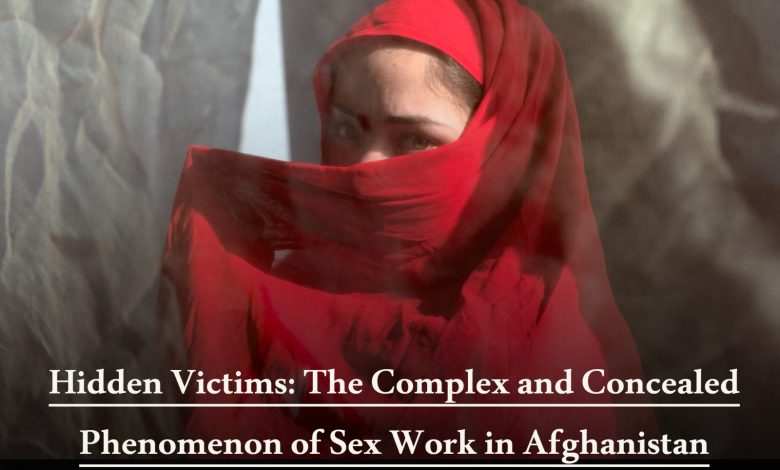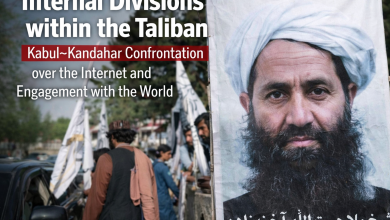Hidden Victims: The Complex and Concealed Phenomenon of Sex Work in Afghanistan Under Taliban Rule
AfgNews24 Afghan news24

Hidden Victims: The Complex and Concealed Phenomenon of Sex Work in Afghanistan Under Taliban Rule
In societies grappling with profound political, social, and economic crises, sex work becomes not only a means of survival for vulnerable groups but also a multifaceted and deeply complex phenomenon. In Afghanistan, following the Taliban’s return to power, structural changes have pushed many women to the margins, subjecting them to severe crises where they see no alternative but to endure various forms of exploitation and violence. Contrary to the Taliban’s claims of combating this issue, the reality suggests that sex work has not only persisted but has also evolved into more clandestine and perilous forms—ranging from systematic trafficking to forced marriages and hidden exploitation.
Key Factors Driving the Rise of Sex Work Under Taliban Rule
Sex work in Afghanistan under the Taliban is influenced by a combination of interrelated factors, the most critical of which are:
Widespread Economic Deprivation and Shrinking Livelihood Opportunities
Following the collapse of the previous government and the imposition of severe economic restrictions by the Taliban, millions of Afghanistan families have been plunged into extreme poverty. Thousands of women who were previously employed in government institutions, educational sectors, and international organizations were abruptly removed from the workforce, leaving them with no viable means of survival. Many of them have been driven into precarious and exploitative situations.
Systematic Oppression and Criminalization of Women
The Taliban have officially prohibited sex work based on religious and legal grounds. However, in practice, this prohibition serves as a tool for controlling and oppressing women. Some Taliban members themselves engage in sexual exploitation of women while simultaneously subjecting them to degrading and inhumane conditions under the guise of moral policing.
Increase in Human Trafficking and Sexual Exploitation
The trafficking of Afghanistani women and girls—particularly from border regions—has intensified in recent years. Many victims are smuggled into neighboring countries, such as Pakistan, Iran, and the Gulf states, while others remain trapped within Afghanistan—particularly in cities like Jalalabad, Kandahar, Herat, Bamyan, and Kabul—where they fall prey to underground exploitation networks.
Forced and Transactional Marriages
In many Taliban-controlled areas, young women and widows are coerced into marrying Taliban fighters. These marriages often amount to a form of sexual slavery, with some women being later sold or abandoned without any legal or social protections.
The Taliban’s Role in Sex Work and Exploitation of Women
Hidden Clients and Perpetrators of Repression
While the Taliban publicly ban sex work, they are, in reality, one of its primary enablers. Many Taliban members are clandestine clients, and in some cases, women who are arrested under moral charges are forced to provide sexual services to officials—particularly local Taliban commanders—in exchange for their release or survival.
Involvement in Human Trafficking and Illicit Trade
Human trafficking networks that smuggle women and girls to foreign destinations often operate under the Taliban’s watch. Some local commanders and high-ranking Taliban figures either actively participate in these networks or turn a blind eye, as these operations serve as a financial and strategic asset for sustaining Taliban influence.
Sexual Exploitation in Detention Centers and Prisons
Women arrested on charges of “moral corruption” or “violating Sharia laws” frequently face sexual abuse and assault while in detention. This practice highlights the Taliban’s systematic use of criminalizing sex work as a pretext for further violence and oppression against women.
A Call for Immediate International Action
Findings indicate that sex work in Afghanistan under Taliban rule has not diminished but has instead become more covert and complex. The systematic deprivation of women’s fundamental rights—such as access to education, employment, and legal protection—has indirectly fueled the expansion of traditional and new forms of sex work.
This report underscores the urgent need for comprehensive and immediate international intervention. It calls upon human rights organizations, media outlets, and global institutions to:
Document these human rights violations meticulously.
Advocate for practical and immediate measures to support Afghanistan women. Hold the Taliban accountable for the systemic violence and exploitation of women. The crisis in Afghanistan demands not only condemnation but also concrete and decisive actions to challenge and dismantle the structures enabling gender-based violence and exploitation under Taliban rule.




